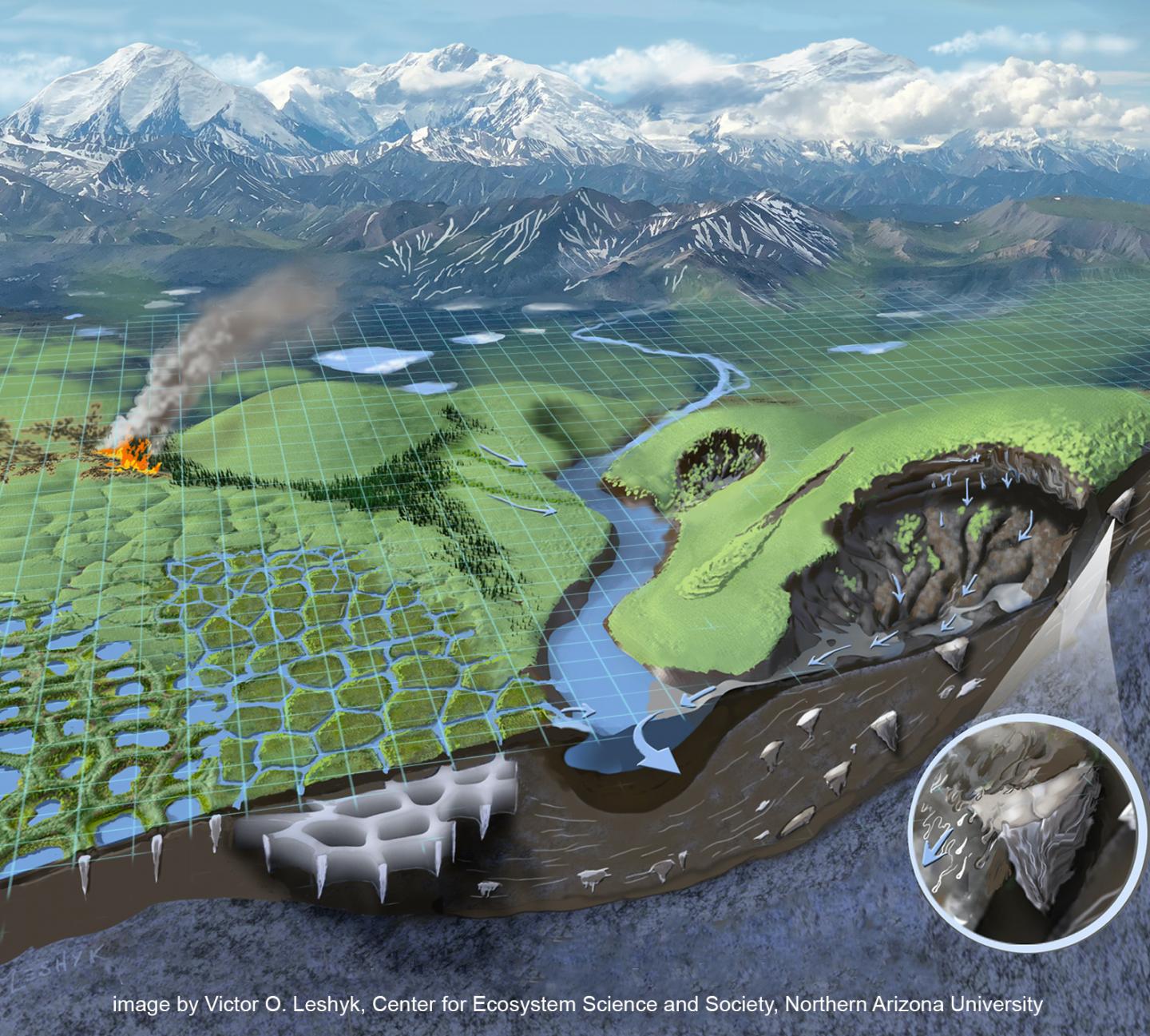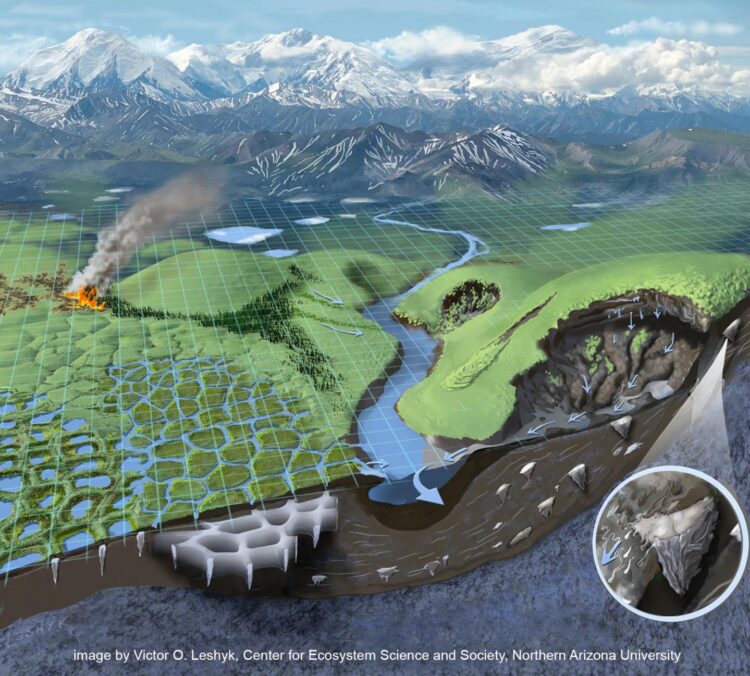
Credit: Victor O. Leshyk, Center for Ecosystem Science and Society, Northern Arizona University
Scientists at Northern Arizona University, Arizona State University, the Arizona Geological Survey at the University of Arizona, and the National Snow and Ice Data Center at the University of Colorado Boulder have been awarded almost $2 million from the National Science Foundation (NSF) to develop a virtual reality teaching tool called Polar Explorer. In this web-based, immersive environment, undergraduate students will explore polar environments in the Arctic to learn about permafrost from their laptops, desktops, or mobile devices.
“The real-time transformation of the Arctic affects everyone, but most of us can’t travel there to witness these changes,” said Deborah Huntzinger, associate professor in the School of Earth and Sustainability at Northern Arizona University (NAU) and principal investigator (PI) leading the project. “Polar Explorer will take students deep into thawing permafrost and to the edge of Arctic shorelines to learn about how the region is changing in an immersive, accessible way.” She is joined by co-PI Michelle Mack and artist Victor Leshyk from the Center for Ecosystem Science and Society at NAU, Ariel Anbar and Chris Mead from the School of Earth and Space Exploration and Center for Education Through Exploration (ETX) at Arizona State University (ASU), Lisa Thompson from Arizona Geological Survey at the University of Arizona, and Kevin Schaefer from the National Snow and Ice Data Center at the University of Colorado Boulder (UCB).
The team is zeroing in on the Arctic because climate warming is altering this region rapidly in ways that affect climate, infrastructure, and public health around the globe. Over the past three decades, the Arctic has warmed at twice the rate of the rest of the world and permafrost has started to thaw. Thawing permafrost releases enormous amounts of previously frozen greenhouse gases to the atmosphere, accelerating the pace of climate change. Permafrost thaw can also threaten the food security and clean water of local residents, lead to the erosion of landscapes, the collapse of buildings and roads, and increased risk of wildfires. These impacts make it important for the general public to understand how the Arctic is changing and why these changes have significant consequences for people around the world. But the remoteness and inaccessibility of the Arctic makes teaching students about permafrost and its consequences challenging.
The team hopes Polar Explorer will change that.
Using virtual learning technology pioneered by ASU’s ETX Center, students will be able to visit scientifically-accurate landscapes and interact with them as if they were physically there — regardless of a student’s socioeconomic background, physical ability, or level of academic preparation. Polar Explorer will be an adaptive learning environment built around a series of immersive virtual field trips (iVFTs). For example, to examine the connections between carbon and permafrost, students will travel (virtually) to the Carbon in Permafrost Heating Experimental Research site in Healy, Alaska, where NAU researcher Ted Schuur has been studying permafrost for over a decade. Starting in the cabin where Schuur’s research team lives during the summer, students will hear neighborhood sled dogs howl. At the field site, they will measure carbon dioxide emissions, examine carbon dioxide and temperature data output in real time, and make other virtual measurements to compare permafrost thaw depths in plots that were warmed versus those that were not.
“Polar Explorer will put students in the field, so they are not just reading about the dramatic changes we observe in the Arctic, but experiencing them,” said Schaefer, a research scientist at the National Snow and Ice Data Center.
Each student navigating the iVFTs within Polar Explorer will have a unique experience, receiving personalized feedback appropriate to their needs while working towards the same learning outcomes as their peers. The team, with help from NAU’s Center for Science Teaching and Learning, will test Polar Explorer in undergraduate courses at NAU before making it free and available to all college-level students with access to the internet and a modern web browser.
The COVID-19 pandemic increased the need for outcome-driven, distance learning resources for teachers at all levels, and Polar Explorer meets that need, said Thompson, a research scientist at the Arizona Geological Survey. “Intelligent tutoring systems have been tested in undergraduate science classes at NAU, ASU, and around the nation and world,” she said. “We have the technology, and now is an important time to bring the rapidly changing Arctic to student’s devices.”
“What’s particularly exciting about this project is the opportunity to study how iVFTs help students to learn difficult concepts such as working across multiple scales and understanding transdisciplinary connections,” said Mead, an assistant research scientist at ASU. “These skills are inherent to polar science, and they are absolutely critical for preparing students to solve the challenges of the 21st century.”
###
Media Contact
Kate Petersen
[email protected]





